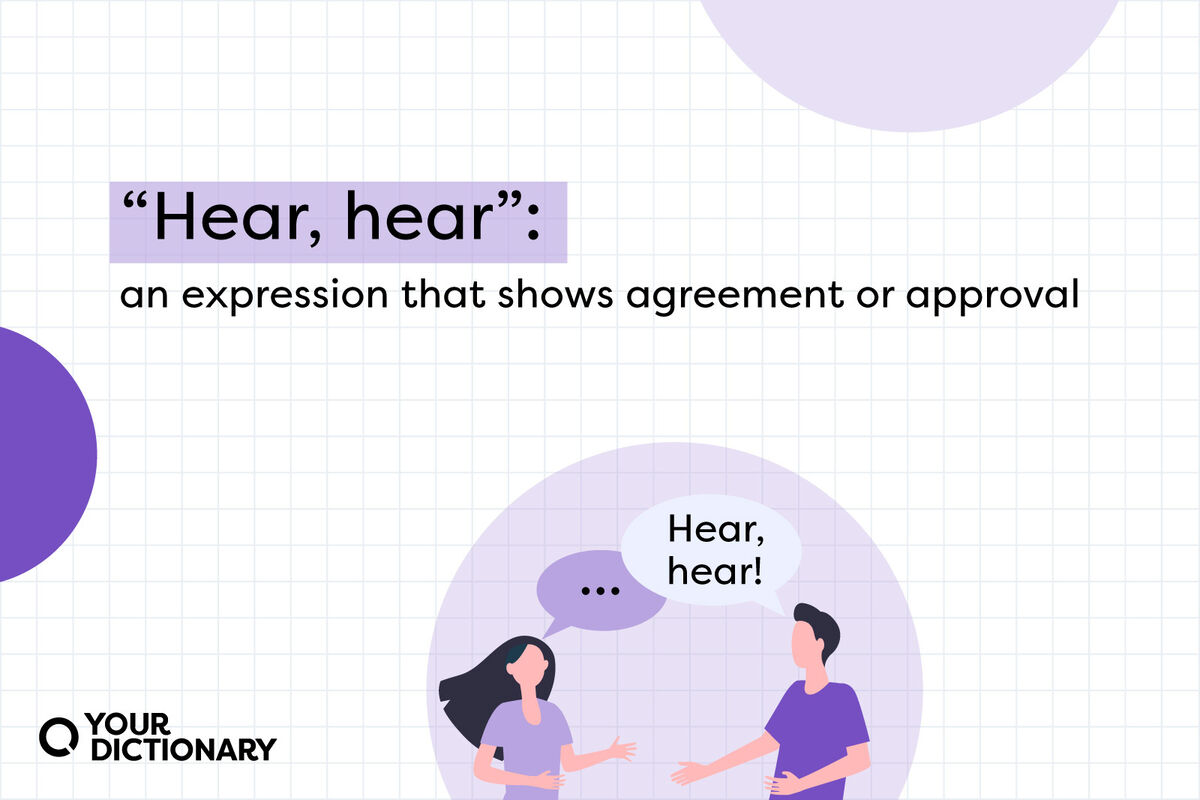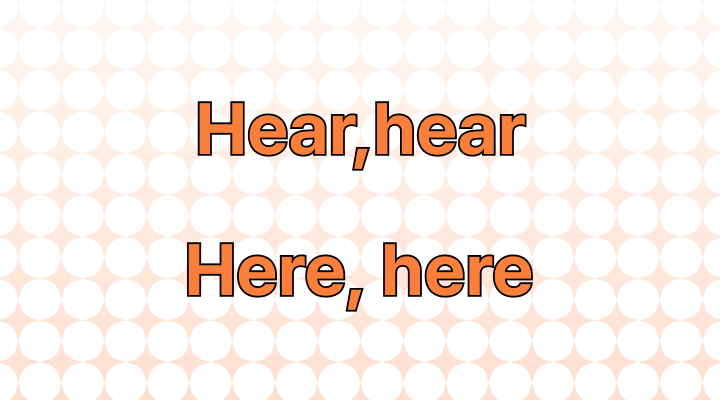Hear, hear is an expression used to show agreement or support during a discussion or speech. Here, here is an incorrect variation of this expression and is not commonly used or accepted.
The phrases Hear, hear and here, here may sound remarkably similar when spoken aloud, but they do not carry the same meaning.
What does hear hear mean?
Hear, hear is a phrase employed to express agreement, support, or enthusiastic approval during a discussion or speech.
It originates from the British Parliament, where members would exclaim Hear him! Hear him! to signal their agreement with a speaker's point. Over time, this expression has evolved into the more concise "Hear, hear." When someone says "Hear, hear," they are essentially applauding the speaker's ideas or expressing their alignment with the statements made. It's a way of showing solidarity with the speaker and acknowledging the validity of their arguments.
Example sentences
- When the mayor announced the new community center project, the audience enthusiastically exclaimed, "Hear, hear!"
- The professor's insightful lecture received a resounding "Hear, hear!" from the students.
- As the politician outlined his plans for environmental conservation, the crowd chanted, "Hear, hear!"
- The team's remarkable victory was met with a chorus of "Hear, hear!" from their fans.
- During the debate, each valid point made by the opposition was met with a polite "Hear, hear."
- The CEO's commitment to employee well-being was evident when the staff responded with "Hear, hear!"
- In response to the speaker's call for unity, the audience cheered, "Hear, hear! We are stronger together."
- The artist's vision for the mural resonated with the neighborhood, and they all cheered, "Hear, hear!"
- The chef's innovative menu at the new restaurant was met with an enthusiastic "Hear, hear!" from food critics.
- The philanthropist's generous donation to the local school was applauded with a heartfelt "Hear, hear!" from the grateful community.
What does here here mean?
Here, here is not a common phrase in English, and its usage is limited. It may occasionally appear in informal writing or speech, but it is considered incorrect and not widely accepted. This variation is likely due to a misunderstanding or misinterpretation of the original phrase. When people use "Here, here," they may intend to convey a similar sentiment to "Hear, hear," but it is not the proper way to do so.
In summary, the distinction between "Hear, hear" and "Here, here" lies in their meanings and appropriateness. "Hear, hear" is the correct phrase used to express agreement or support in discussions, while "Here, here" is an incorrect variation that should be avoided in formal and even informal contexts. Understanding these nuances can help you communicate effectively and avoid linguistic pitfalls.
Want to sound like a native speaker?
Engram’s AI-powered grammar checker makes your English sound like a native speaker’s, suggesting natural English expressions on top of fixing grammar, spelling, punctuation, word order, and vocabulary.















